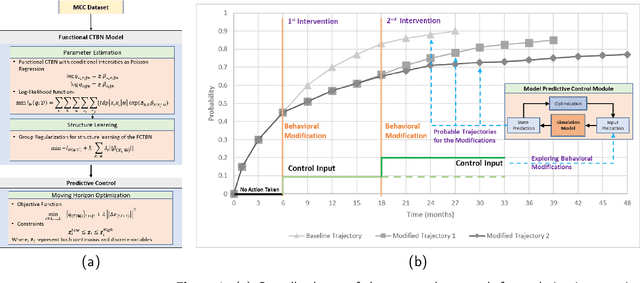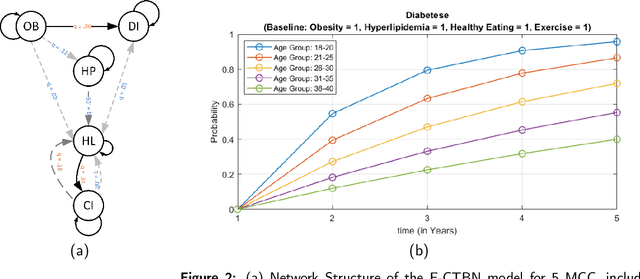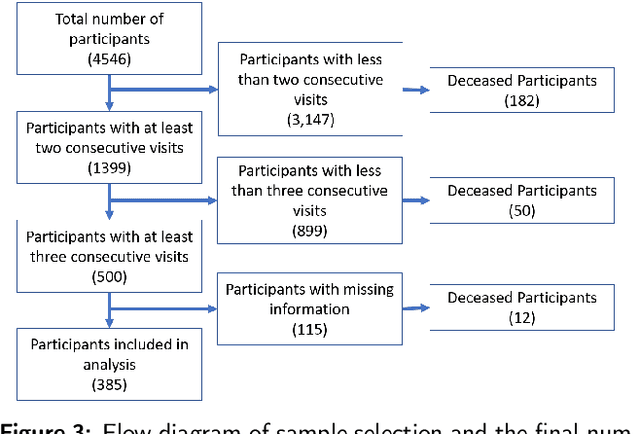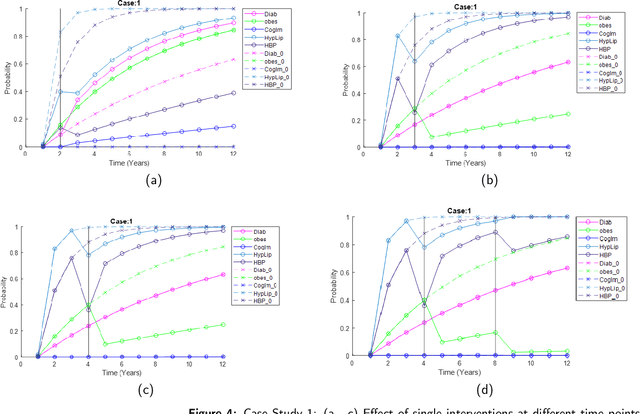A Model Predictive Control Functional Continuous Time Bayesian Network for Self-Management of Multiple Chronic Conditions
Paper and Code
May 26, 2022



Multiple chronic conditions (MCC) are one of the biggest challenges of modern times. The evolution of MCC follows a complex stochastic process that is influenced by a variety of risk factors, ranging from pre-existing conditions to modifiable lifestyle behavioral factors (e.g. diet, exercise habits, tobacco use, alcohol use, etc.) to non-modifiable socio-demographic factors (e.g., age, gender, education, marital status, etc.). People with MCC are at an increased risk of new chronic conditions and mortality. This paper proposes a model predictive control functional continuous time Bayesian network, an online recursive method to examine the impact of various lifestyle behavioral changes on the emergence trajectories of MCC and generate strategies to minimize the risk of progression of chronic conditions in individual patients. The proposed method is validated based on the Cameron county Hispanic cohort (CCHC) dataset, which has a total of 385 patients. The dataset examines the emergence of 5 chronic conditions (diabetes, obesity, cognitive impairment, hyperlipidemia, and hypertension) based on four modifiable risk factors representing lifestyle behaviors (diet, exercise habits, tobacco use, alcohol use) and four non-modifiable risk factors, including socio-demographic information (age, gender, education, marital status). The proposed method is tested under different scenarios (e.g., age group, the prior existence of MCC), demonstrating the effective intervention strategies for improving the lifestyle behavioral risk factors to offset MCC evolution.
 Add to Chrome
Add to Chrome Add to Firefox
Add to Firefox Add to Edge
Add to Edge